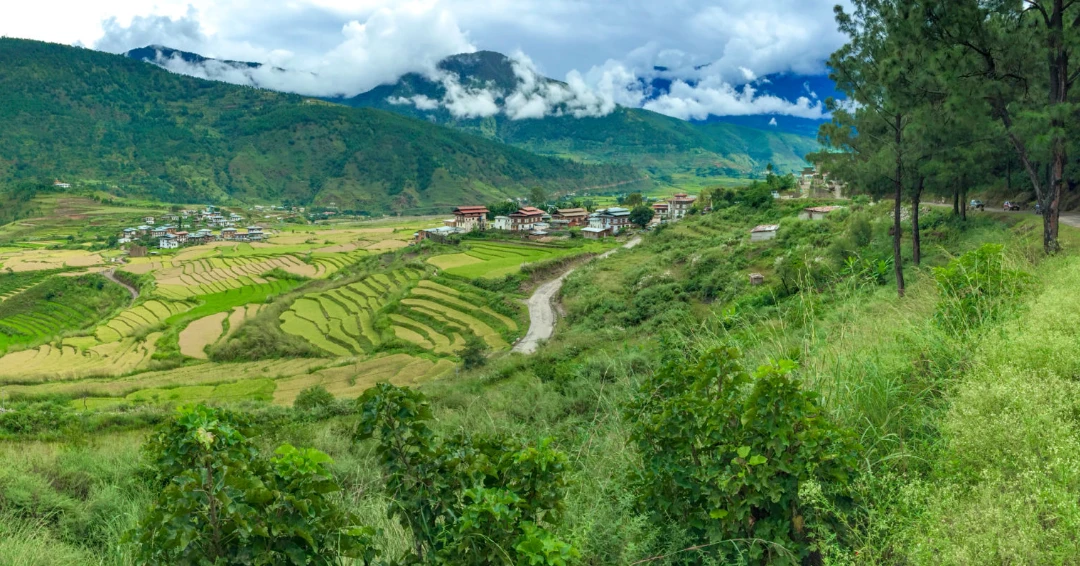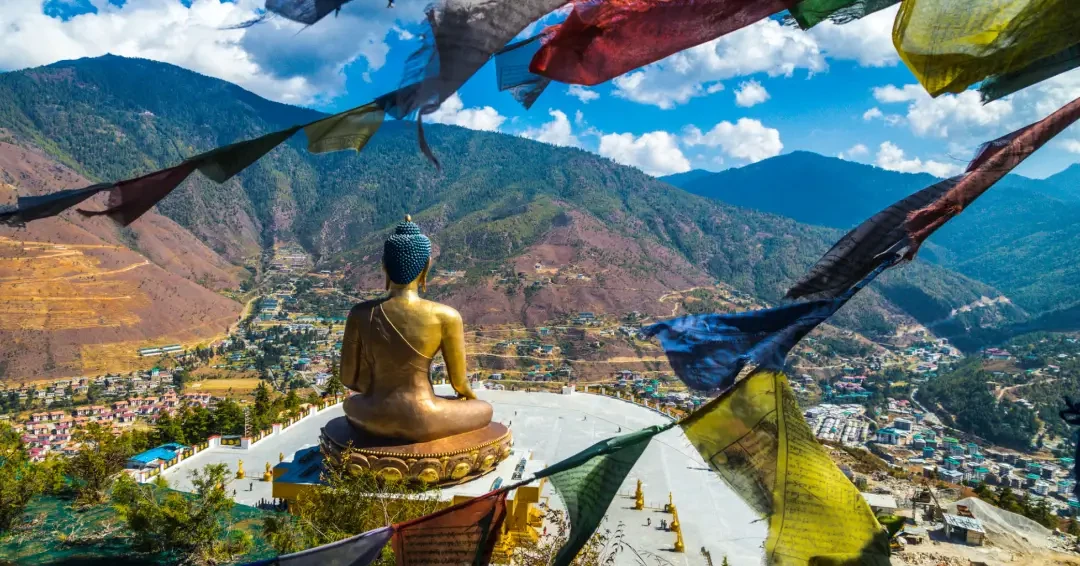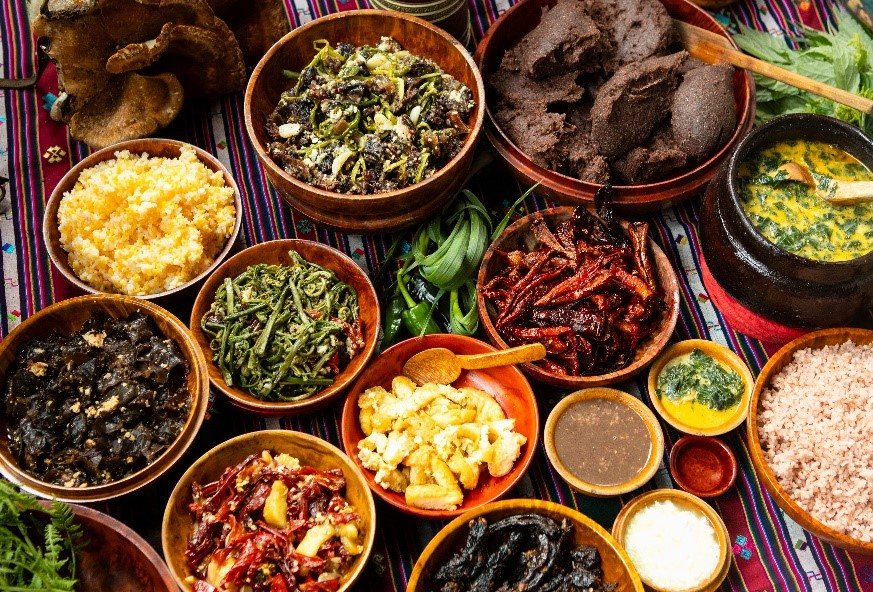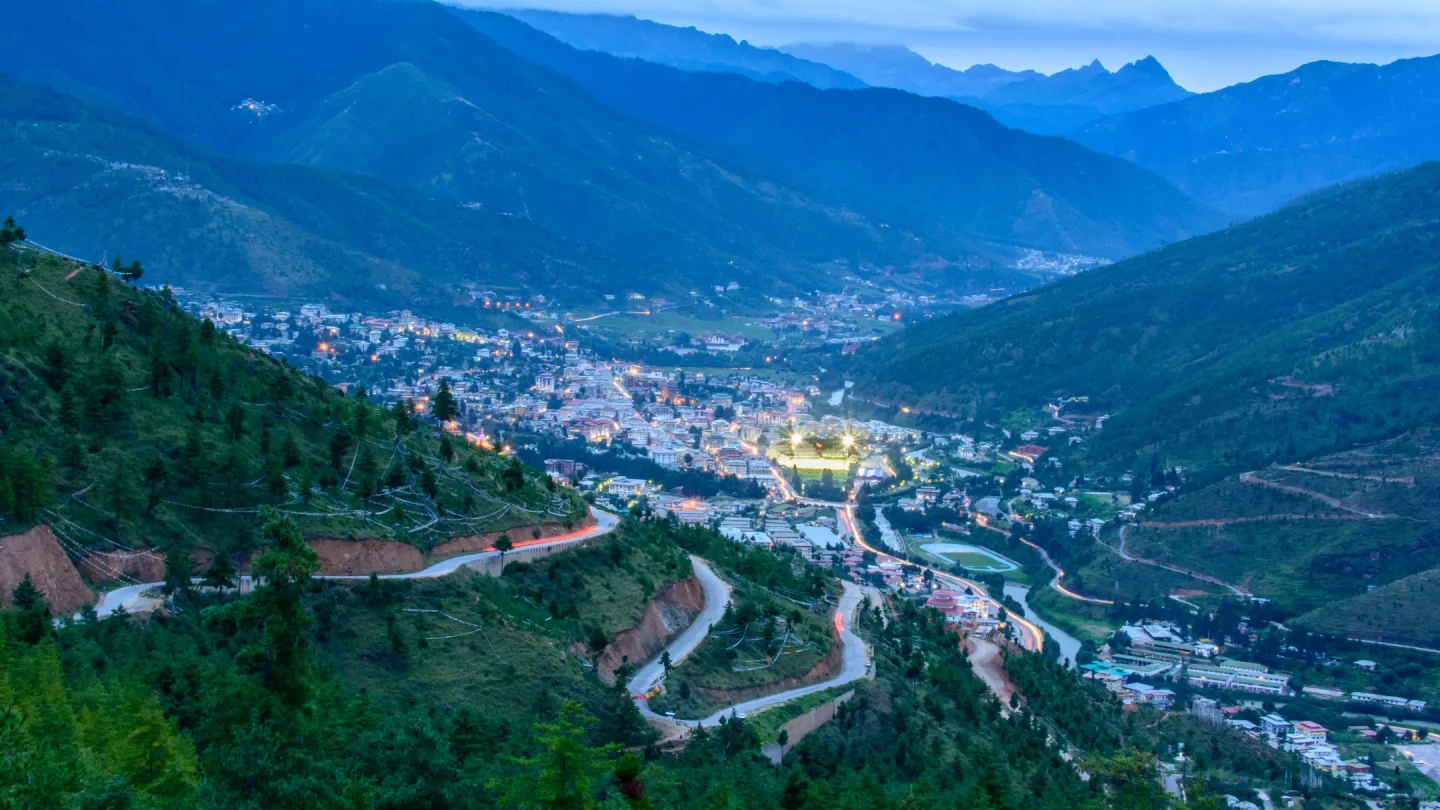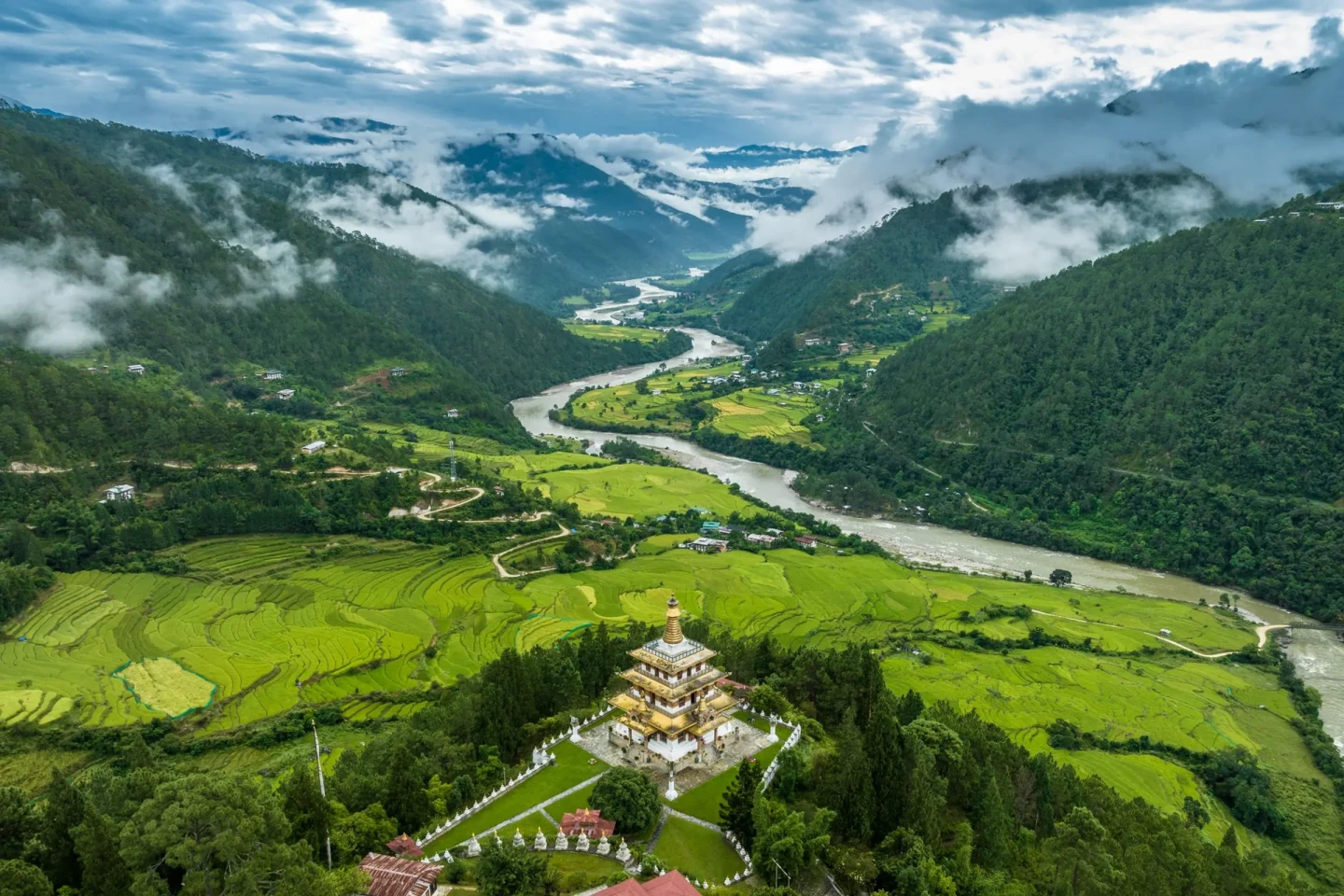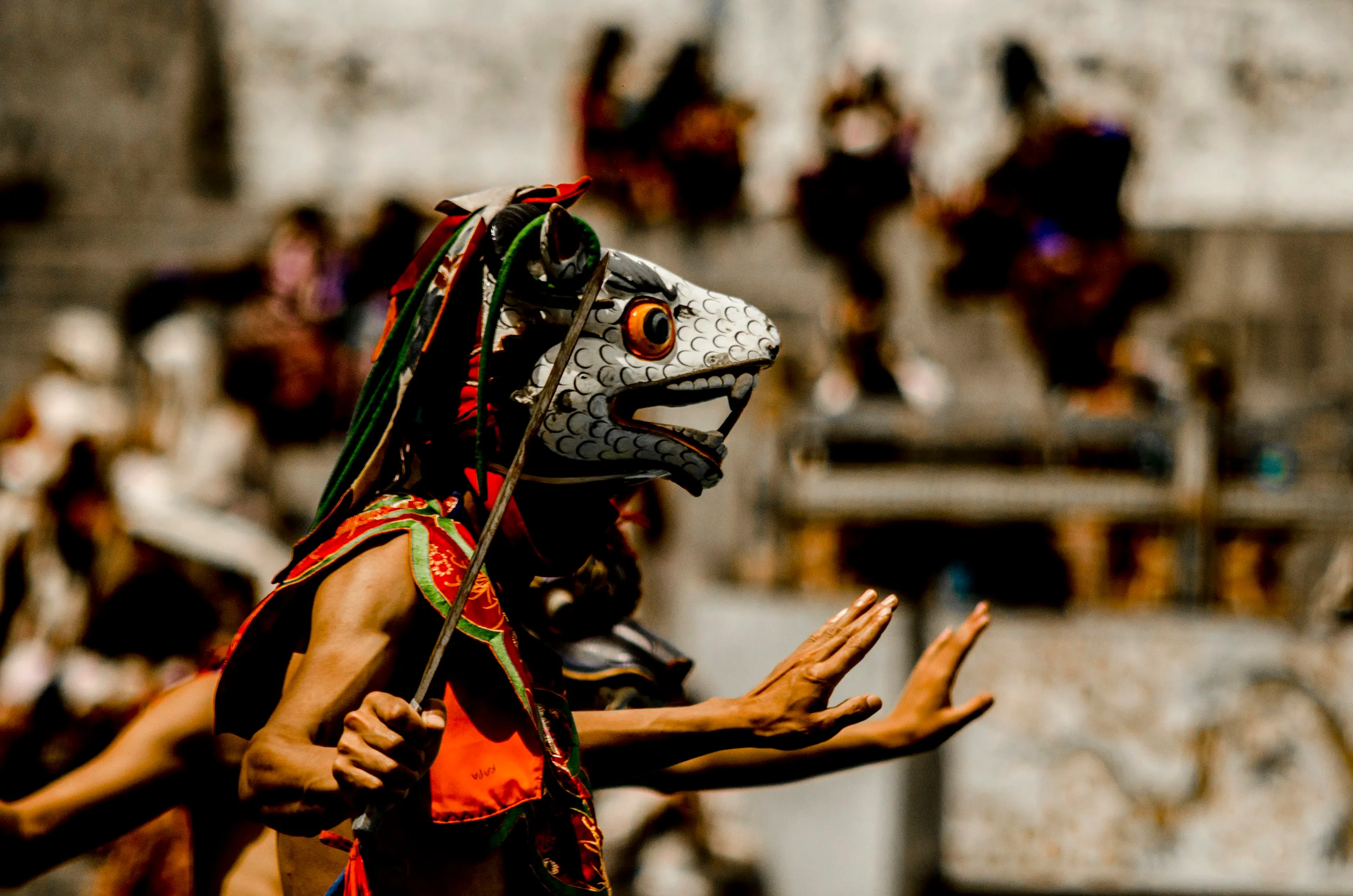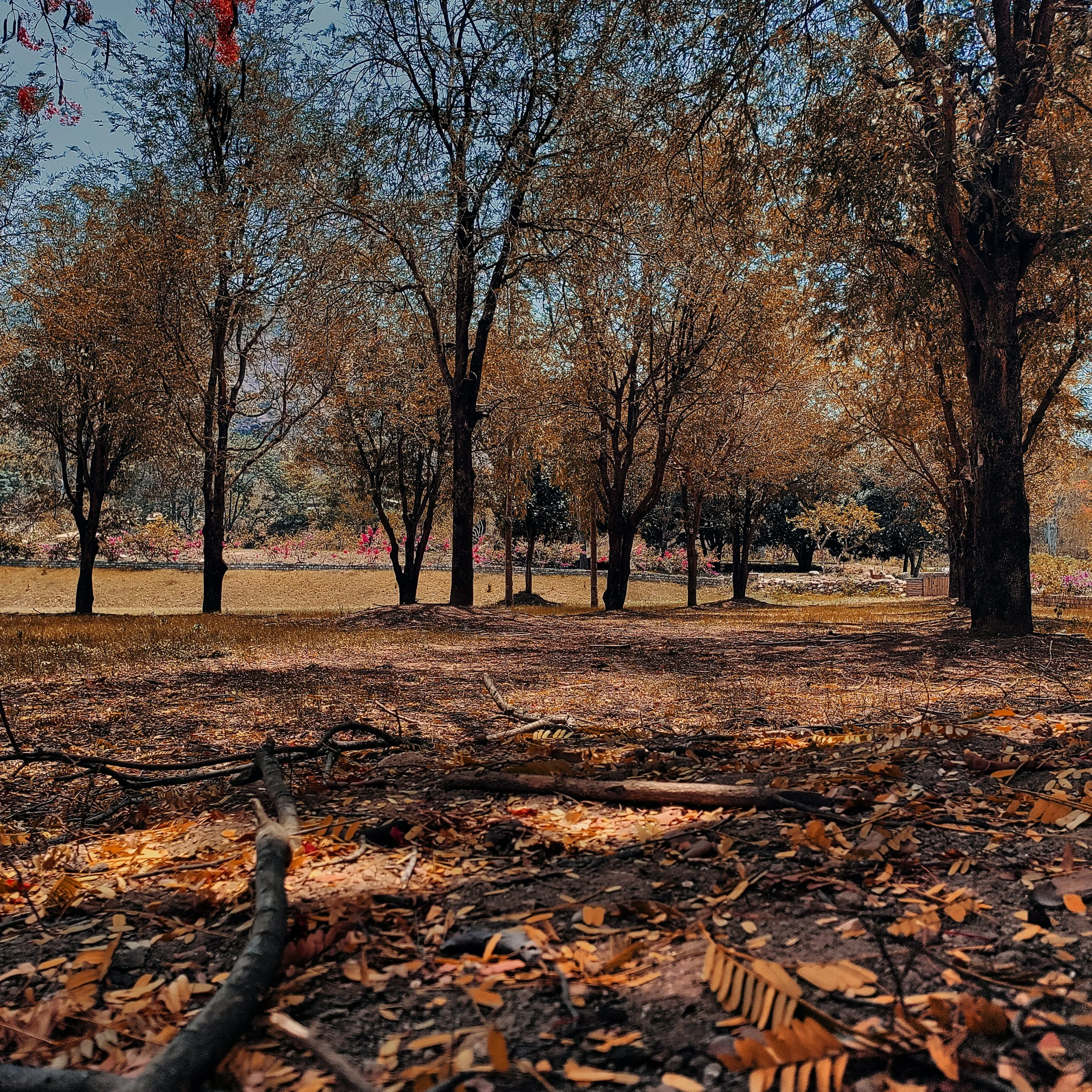Nestled in the eastern Himalayas, Bhutan emerges as a captivating destination that promises Kuwaiti travelers an unparalleled blend of natural splendor, profound spirituality, and cultural richness. Often dubbed the "Land of the Thunder Dragon," Bhutan captivates with its majestic snow-capped peaks, lush valleys teeming with rhododendrons, and ancient fortresses that stand as sentinels of history. For Kuwaiti visitors, who hail from a nation renowned for its desert landscapes and modern skyscrapers, Bhutan offers a stark yet enchanting contrast—a world where time seems to slow down amid pristine forests and crystal-clear rivers, far removed from the bustling urban energy of Kuwait City. The diplomatic ties between Bhutan and Kuwait, established in 1983, have fostered a warm and supportive relationship, highlighted by mutual respect between their royal families and shared commitments in international forums. Both countries, though geographically and economically distinct—Kuwait thriving on oil reserves and Bhutan on hydropower and eco-tourism—prioritize the well-being of their people, with Bhutan's Gross National Happiness philosophy echoing Kuwait's high human development index and emphasis on social harmony. This guide, crafted as if by an experienced Bhutanese travel consultant, aims to equip Kuwaiti travelers with a deep understanding of Bhutan, ensuring a journey that is not only practical but also culturally immersive and transformative.
Visa and Entry Requirements
Bhutan's tourism policy is meticulously designed to preserve its unique environment and culture, mandating that all foreign visitors, including those from Kuwait, arrange their trips through licensed Bhutanese tour operators. This controlled approach ensures sustainable tourism and high-quality experiences. For Kuwaiti tourists, obtaining a visa begins with selecting a reputable tour operator who will handle the application process on your behalf. You will need to provide a copy of your passport, valid for at least six months from the date of entry, along with a recent passport-sized photograph and details of your itinerary. The operator submits these to the Tourism Council of Bhutan (TCB) and the Department of Immigration, where approval typically takes about a week. Once approved, the visa is issued upon arrival at Paro International Airport or land borders, stamped into your passport for the duration of your stay. Payment for the tour, which must be made in advance via bank transfer, is intrinsically linked to visa issuance, as the government requires proof of full payment to confirm your booking. A key component of this is the Sustainable Development Fee (SDF), currently set at USD 100 per person per night for most international visitors, including Kuwaitis. This fee funds conservation efforts, education, and healthcare, directly contributing to Bhutan's Gross National Happiness. It significantly impacts overall pricing, as it is included in your tour cost alongside accommodations, meals, and guides, making Bhutan a premium destination but one that guarantees authentic and responsible travel.
Travel Routes from Kuwait to Bhutan
Reaching Bhutan from Kuwait involves a multi-leg journey, given the absence of direct flights, but the adventure begins with the scenic descent into Paro International Airport, one of the world's most challenging due to its high-altitude location amid towering mountains. Kuwaiti travelers typically depart from Kuwait International Airport (KWI) and transit through major hubs such as Delhi (India), Bangkok (Thailand), or Kathmandu (Nepal), which serve as gateways to Bhutan. Popular routes include flying with airlines like Etihad Airways, flydubai, or Jazeera Airways to Delhi, followed by a connection on Drukair (Bhutan's national carrier) or Bhutan Airlines, the only two operators permitted to fly into Paro. Similarly, routes via Bangkok might involve Thai Airways or Gulf Air to the transit point, then Drukair onward. Flight durations vary: from Kuwait to Delhi is about 4-5 hours, with the final leg to Paro taking around 3-4 hours. Paro Airport's operations are limited to daylight hours and visual flight rules, making it susceptible to weather-related delays, especially during monsoon seasons when fog or rain can ground planes. Kuwaiti travelers should book flights well in advance through their tour operator, who coordinates with the SDF payment, and aim for flexible schedules to account for potential disruptions. Realistic expectations include preparing for layovers of several hours and carrying essentials like snacks and medications, as the journey, while lengthy, culminates in breathtaking Himalayan views that set the tone for your Bhutanese odyssey.
Best Time to Visit and Seasonality
Bhutan's climate is as diverse as its landscapes, influenced by its Himalayan topography, creating microclimates that vary from subtropical lowlands to alpine heights. The country experiences four distinct seasons, each offering unique experiences that Kuwaiti travelers should consider for optimal trip planning. Spring (March to May) brings mild weather with temperatures ranging from 10-20°C in valleys, blooming rhododendrons and jacarandas painting the hillsides in vibrant colors, and fewer crowds, making it ideal for trekking and cultural exploration. Summer (June to August) ushers in the monsoon, with heavy rains leading to lush greenery but also slippery roads and potential landslides, though it's a time for rare festivals like the mushroom matsutake harvest. Autumn (September to November) is widely regarded as the prime season, featuring clear skies, crisp air (5-15°C), and major Tshechu festivals with mask dances honoring Guru Rinpoche, drawing locals in traditional attire. Winter (December to February) offers sunny days but chilly nights dipping below freezing at higher elevations, perfect for birdwatching and serene monastery visits with minimal tourists. For Kuwaiti visitors accustomed to arid heat, autumn is recommended for its comfortable weather, festival highlights like the Thimphu Tshechu, and balanced crowd levels, allowing for activities such as hiking to Tiger's Nest without extreme conditions. Planning around these seasons ensures a harmonious blend of nature, culture, and comfort.
Money, Costs, and Payment Methods
Bhutan's currency, the Ngultrum (BTN), is pegged to the Indian Rupee at par value, facilitating easy exchanges for Kuwaiti travelers who might carry USD as a universal option. Upon arrival, exchange facilities at Paro Airport or banks in major towns like Thimphu and Paro accept USD, Euros, or even Kuwaiti Dinars, though rates are best for clean, high-denomination bills. ATMs are increasingly available in urban areas, operated by banks like Bhutan National Bank, accepting Visa and Mastercard, but rural regions lack them, so carrying sufficient cash is advisable. Credit cards are accepted in upscale hotels and some shops in Thimphu, but not ubiquitously, and transaction fees may apply. Tour prices, mandated by the government, typically encompass accommodations in 3-star hotels or better, all meals, internal transport via private vehicles, English-speaking guides, and entrance fees, providing excellent value. However, extras such as alcoholic beverages, tips for guides and drivers (around USD 10-15 per day), personal shopping, or optional activities like hot stone baths are not included. Kuwaiti travelers should budget an additional USD 50-100 per day for these, ensuring a seamless experience in a cash-preferred economy where the SDF already covers substantial sustainable development costs.
Health, Safety, and Travel Insurance
Health considerations in Bhutan revolve around its high-altitude terrain, where elevations from 1,200 to over 3,000 meters can trigger altitude sickness, manifesting as headaches, nausea, or fatigue, particularly for Kuwaiti travelers unaccustomed to such heights. Preventive measures include gradual acclimatization, hydration, and avoiding strenuous activity initially. Recommended vaccinations encompass Hepatitis A, Typhoid, and Tetanus, with updates for routine shots like MMR; consult a travel clinic in Kuwait well in advance. Medical facilities are basic outside Thimphu, where Jigme Dorji Wangchuck National Referral Hospital offers competent care, but for serious issues, evacuation to India or Thailand is common. Travel insurance is indispensable, covering medical emergencies, evacuation by helicopter (essential given remote areas), and trip cancellations, as Bhutan's policy requires proof of coverage. Safety-wise, Bhutan boasts remarkably low crime rates, with its Buddhist ethos promoting harmony, though minor risks include stray dogs (rabies shots advised if bitten) and uneven trekking paths. Kuwaiti visitors can travel with peace of mind, but vigilance on winding roads and respect for local customs enhance overall security in this tranquil kingdom.
Cultural Etiquette and Social Expectations
Bhutanese society is deeply rooted in Buddhist principles of respect, humility, and compassion, requiring Kuwaiti travelers to adapt slightly to ensure harmonious interactions. In temples and monasteries, modesty is paramount: cover shoulders and knees, remove hats and shoes before entering, and walk clockwise around stupas or prayer wheels as a sign of reverence. Pointing at religious statues or monks with fingers is considered rude; use an open palm instead. Public displays of affection are uncommon, and patience is valued in a culture where time flows gently, contrasting perhaps with Kuwait's efficient pace. Humility shines through in greetings—fold hands in prayer position and say "Kuzuzangpo la"—and accepting offerings like butter tea with both hands shows gratitude. Kuwaiti cultural behaviors, such as generous hospitality, align well, but adjustments like avoiding loud conversations in sacred spaces or refraining from touching others' heads (considered sacred) foster deeper connections. Embracing these nuances not only prevents misunderstandings but enriches the experience, allowing Kuwaiti visitors to immerse in Bhutan's serene social fabric.
Connectivity, SIM Cards, Internet Access
While Bhutan's connectivity has improved, it remains modest compared to Kuwait's advanced networks, with Wi-Fi available in most hotels and cafes in Thimphu and Paro, though speeds vary and outages occur in remote areas. For reliable mobile access, Kuwaiti travelers should purchase a local SIM card upon arrival at Paro Airport or town outlets from providers like B-Mobile (Bhutan Telecom) or TashiCell, both offering tourist packages with data, calls, and texts starting from around BTN 500 for a week. B-Mobile boasts wider coverage, ideal for treks, while TashiCell suits urban stays; activation requires your passport and visa. Prepaid top-ups are easy via scratch cards or apps. Note that some Kuwaiti apps may face restrictions due to Bhutan's internet policies, so a VPN is useful for unrestricted access. This setup ensures you stay connected for navigation, sharing experiences, or emergencies, bridging Bhutan's tranquility with modern needs.
Language and Communication
Dzongkha serves as Bhutan's national language, a Tibeto-Burman tongue written in elegant script, but English is the medium of instruction in schools and prevalent in tourism, easing communication for Kuwaiti travelers. Guides and hotel staff are fluent in English, facilitating seamless interactions, though rural locals may speak limited amounts. Arabic-speaking guides are rare, given Bhutan's focus on English and regional languages, but tour operators can arrange multilingual support if requested in advance. For those with limited English, simple gestures, translation apps like Google Translate (with offline Dzongkha packs), or learning basic phrases such as "Thank you" (Kadinche la) prove invaluable. Patience and smiles transcend barriers, turning potential challenges into opportunities for genuine cultural exchange in this linguistically diverse kingdom.
Packing and Preparation Advice
Packing for Bhutan demands versatility to handle its varying climates, from warm valleys to chilly mountain passes, unfamiliar to Kuwait's desert uniformity. Layering is key: pack breathable cotton shirts, long pants, and lightweight jackets for days, plus fleece or wool sweaters for evenings when temperatures drop to 5°C or below. Waterproof rain gear, including a jacket and sturdy hiking boots with good grip, is essential for monsoons or treks, while comfortable walking shoes suit urban explorations. Personal items should include high-SPF sunscreen, insect repellent, a reusable water bottle for hydration at altitude, and medications like pain relievers, anti-diarrhea pills, and altitude sickness remedies such as Diamox. Power adapters for Bhutan's 230V system with Indian-style round-pin plugs (Type D/M) are crucial, along with a portable charger for outages. Other considerations: modest clothing for temples, a flashlight, binoculars for wildlife, and eco-friendly toiletries, ensuring Kuwaiti travelers are prepared for Himalayan conditions without overpacking.
Bhutan’s Unique Tourism Philosophy
At the heart of Bhutan's tourism lies the philosophy of Gross National Happiness (GNH), a holistic approach prioritizing citizens' well-being over economic growth, shaping policies that favor quality over quantity in visitors. Introduced by the Fourth King in the 1970s, GNH encompasses four pillars—good governance, sustainable development, cultural preservation, and environmental conservation—guiding the "high value, low impact" tourism model. This cautious stance limits modernization, such as restricting mass tourism and requiring guided tours, to protect fragile ecosystems and traditions from overt commercialization. For Kuwaiti travelers, understanding this means appreciating why Bhutan caps visitor numbers and channels SDF revenues into community benefits, fostering authentic experiences rather than superficial ones. It underscores Bhutan's commitment to remaining a sanctuary where happiness is measured not in GDP but in harmony with nature and self.
Mindset and Expectations for Visitors
Visiting Bhutan requires a mindset shift toward embracing simplicity and introspection, diverging from Kuwait's fast-paced, luxury-oriented lifestyle. Life here unfolds at a leisurely rhythm, with limited infrastructure meaning winding roads may extend travel times and small, family-run hotels offer cozy but basic amenities without five-star extravagances. Expect no glittering nightlife or high-end shopping malls; instead, evenings might involve stargazing or monastery meditations. The focus is on nature's grandeur—hiking pristine trails—and spiritual depth, like contemplating ancient dzongs, rather than material comforts. Kuwaiti travelers should anticipate this as an opportunity for rejuvenation, adjusting expectations to value cultural immersion over convenience, transforming potential adjustments into profound personal growth.
Food and Dining Culture
Bhutanese cuisine reflects the kingdom's agrarian roots and Himalayan influences, characterized by bold, spicy flavors from chilies, hearty cheeses, and simple staples that embody communal hospitality. Signature dishes include ema datshi, a fiery stew of chilies and cheese, often paired with red rice, a nutritious grain unique to Bhutan. Other favorites are momos (dumplings filled with meat or vegetables), phaksha paa (pork with radish and chilies), and jasha maru (spicy chicken curry), all emphasizing fresh, organic ingredients. Dining is a social affair, with meals served family-style to foster bonds, and butter tea (suja) as a staple beverage, salty and warming for high altitudes. Alcohol like ara (rice wine) or local beers appears in celebrations, symbolizing joy, while tea rituals underscore politeness—accept with both hands. For Kuwaiti palates accustomed to Middle Eastern spices, Bhutan's heat might surprise, but vegetarian options abound, and tours accommodate preferences, making food a gateway to cultural warmth.
Festivals, Religion, and Sacred Places
Religion permeates Bhutanese life, with Vajrayana Buddhism shaping daily rituals and grand festivals that offer Kuwaiti travelers profound insights into spiritual devotion. Tshechus, annual religious festivals at dzongs, feature mesmerizing mask dances by monks, reenacting Guru Rinpoche's deeds, accompanied by music and communal picnics. Attending one, like Paro Tshechu in spring, reveals vibrant costumes and sacred cham dances, contributing to cultural understanding. Sacred sites such as Taktsang Monastery (Tiger's Nest) demand respect: dress modestly, remove shoes, and maintain silence. Rules include no photography inside temples and clockwise circumambulation. These experiences highlight Buddhism's emphasis on impermanence and compassion, enriching visitors with a deeper appreciation of Bhutan's soul.
Hidden Challenges and Practical Inconveniences
Bhutan's allure includes embracing its subtle challenges, which, when viewed positively, enhance its authentic charm rather than detract from it. Road conditions, often narrow and winding through mountains, can lead to longer travel times and occasional motion sickness, with weather prompting itinerary adjustments like rerouting hikes. Power outages are not uncommon, especially in rural areas reliant on hydropower, so a flashlight becomes a companion for evening reads. Service might seem unhurried, reflecting the unpressured lifestyle, and accommodations, while comfortable, may lack instant hot water or Wi-Fi reliability. Patience is the key virtue here, transforming these inconveniences into opportunities to unplug and connect with nature's rhythm, much like Bhutan's philosophy encourages.
Shopping and Souvenirs
Shopping in Bhutan centers on artisanal treasures that embody its craftsmanship, offering Kuwaiti travelers meaningful mementos without the commercial frenzy of malls. Handwoven textiles like kira and gho fabrics, dyed naturally and patterned intricately, top the list, available at Thimphu's Weekend Market or craft bazaars. Other souvenirs include wooden masks, thangka paintings depicting Buddhist motifs, incense from local herbs, and bamboo crafts. Authenticity is assured in government-run emporiums, where fixed prices prevail, though gentle bargaining is acceptable in private stalls—start at half the asking price and negotiate politely. Absent are duty-free luxuries or branded goods, emphasizing sustainable, locally made items that support artisans and carry Bhutan's essence home.
Altitude Awareness and Physical Preparedness
Altitude in Bhutan affects individuals variably, with symptoms like shortness of breath or dizziness emerging above 2,500 meters, necessitating awareness for Kuwaiti travelers from sea-level origins. Common signs include mild headaches or insomnia, mitigated by acclimatization: spend initial days at lower elevations like Paro (2,200m) before ascending. Precautions involve hydrating with 3-4 liters of water daily, eating light carbohydrate-rich meals, and avoiding alcohol or caffeine. For treks, pace slowly, monitor oxygen levels if possible, and consult doctors pre-trip for medications. Physical preparedness through cardio exercises in Kuwait builds stamina, ensuring enjoyment of Bhutan's heights without undue strain.
Security, Safety, and Emergency Information
Bhutan's reputation as a safe haven is well-earned, with negligible crime and a community-oriented society that welcomes foreigners warmly. Kuwaiti travelers can explore freely, though petty theft in crowded festivals warrants basic precautions like securing valuables. Local laws emphasize respect for monarchy and environment—defacing religious sites or littering incurs fines. Emergency contacts include police at 113, ambulance at 112, and tourist police for assistance. For Kuwaitis, the Royal Bhutanese Embassy in Kuwait handles pre-trip queries, while in Bhutan, contact the Kuwaiti Embassy in New Delhi for consular support, as no direct embassy exists. This framework ensures security, allowing focus on discovery.
Photography and Drones
Photography in Bhutan captures its ethereal beauty, but rules safeguard sanctity: exteriors of dzongs and landscapes are free, but interiors of temples and monasteries prohibit flashes or photos to preserve rituals. Always seek permission before photographing locals, especially monks, to respect privacy. Drones are strictly regulated and generally prohibited for tourists, requiring special permits from the Bhutan Civil Aviation Authority, often denied for security; declare any upon arrival to avoid confiscation. Adhering to these ensures ethical captures that honor Bhutan's heritage.
What Bhutan Does Not Have
Bhutan's deliberate preservation of its identity means an absence of elements common elsewhere, such as skyscrapers piercing the skyline or fast-food chains like McDonald's dotting streets, maintaining a landscape of traditional architecture and organic eateries. No casinos tempt with games of chance, aligning with Buddhist values, and big shopping centers are replaced by artisan markets. This lack is Bhutan's charm, offering Kuwaiti travelers a respite from commercialization in favor of authentic serenity.
Important Questions to Ask Before Booking a Tour
Before committing to a Bhutanese tour operator, Kuwaiti travelers should engage in thoughtful inquiries to tailor the experience perfectly. Start by asking about the guide's qualifications and language proficiency—will they speak fluent English, and is there flexibility for Arabic translation if needed? Delve into itinerary details: how flexible is the schedule for personal interests like extended hikes or festival attendance, and what contingency plans exist for weather disruptions? Inquire about accommodations: are they 3-star or upgradeable, with specifics on locations, amenities, and dietary accommodations for halal or Kuwaiti preferences? Food is crucial—confirm if meals cater to spice levels or allergies, and what's provided beyond the standard Bhutanese fare. For emergencies, ask about medical support, including altitude sickness protocols and insurance requirements. Probe connectivity: will the operator assist with SIM cards, and is Wi-Fi reliable in chosen hotels? Tipping customs should be clarified—how much for guides and drivers? Finally, discuss overall inclusions like SDF handling and any hidden costs, ensuring transparency for a worry-free journey.
Conclusion
In reflection, Bhutan stands as a rare gem for Kuwaiti travelers, a sanctuary where cultural depth, unspoiled natural beauty, and spiritual tranquility converge to offer respite from the world's haste. Unlike commercialized destinations, it invites introspection and genuine connections, rewarding those who seek meaningful experiences with memories of happiness etched in Himalayan vistas. Embrace it fully, and return enriched.





